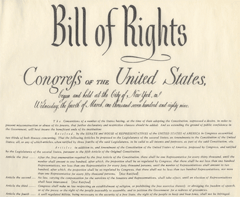Is Broadband a Basic Human Right?
By Harry McCracken | Wednesday, October 14, 2009 at 8:18 am
 IntoMobile is reporting that our friends in Finland will soon get access to broadband Internet access as a basic legal right. Starting next July, a 1-Mbps connection will be mandated; by the end of 2015, a 100-Mbps one will be required. The story doesn’t say whether these connections are guaranteed to be free, or who’s providing them.
IntoMobile is reporting that our friends in Finland will soon get access to broadband Internet access as a basic legal right. Starting next July, a 1-Mbps connection will be mandated; by the end of 2015, a 100-Mbps one will be required. The story doesn’t say whether these connections are guaranteed to be free, or who’s providing them.
Of course, I live in America, a country that can’t figure out how to provide healthcare to everyone, so I’m guessing that universal broadband isn’t coming anytime soon. (And me, I’d vote for putting that particular “right” off until the health thing is resolved, okay?)
What’s your take?
4 Comments
Read more:













October 14th, 2009 at 8:42 am
I’d disagree on a couple of points- first we aren’t Finland. Finland is only slightly larger than Arizona, where in the US we have entire sections of the US that are nearly that size with only a few thousand population. Their population is more than a million less than Arizona as well. So when you’re comparing many countries “nationwide plans” against the US you must consider them against a state, not against our nation.
Could we possibly create broadband connections for every person in Arizona? Possibly. Could we provide broadband to every household in the mountains of West Virginia? Not with current technology and economic models. I live 20 minutes from Wal Mart, and two hours from a mall. And, there are many people who live hours from even a Wal Mart.
And on waiting until Healthcare is “fixed”… Why? That’s like saying the plumbers can’t do their job until the auto mechanics are done. That’s the beauty of a collective of millions of people – we can collectively be doing more than one thing at a time. 😉
October 14th, 2009 at 9:30 am
@Tony: Harry offc just meant He’d rather have universal HC than universal broadband, he’s just putting his priorities out there 😉
October 15th, 2009 at 3:05 am
Let’s think about this.
Rights are things people do which other people, and by extension government, should not have the power with which to interfere. In these United States, these rights have been identified and classified as “life, liberty, and the pursuit of happiness”. They include the Bill Of Rights, which are specific provisions against federal government power (and some later Amendments, which include some provisions against State government power, like the 14th). It is interesting to note that while the late addition of the Bill Of Rights is usually seen as an assurance to the States that federal power would be restrained, its contemporary critics lucidly pointed out that these amendments would devolve into an enumeration of rights that implicitly exclude as priveleges-nee-“rights” anything not listed.
Now, services are things people do in exchange for the inputs which directly or indirectly make the job possible and give direct or indirect incentive to continue. Such incentives include money for the purpose of living (food, shelter), experience for the purpose of career advancement, and charity. Inputs include cash money, barter goods, raw materials, fixed assets (real estate, buildings, machinery), and employee labor inputs.
Now, let’s put these concepts together. If an individual has a right to a service, then one has an indirect right to the inputs of that service. Then one has a right to the labor inputs which make that service possible.
One may wonder how this situation would differ from the federal government managing interstate highways or the post office. The interstate highway project was sold as a matter of national security under Eisenhower and then continued under the now-all-encompassing commerce clause. Similarly, the USPS enjoys protection as a monopoly provider of residential post delivery, which is derived from the power enumerated to Congress in the Constitution (“establish post offices and post roads”). If one accepts that the federal government has legitimate claim to these powers, that does not mean that they will necessarily use them — it is allowed to function in this way, but may function in some other way; and the purpose is for defense and “welfare”, which in the late 18th Century meant the actual welfare and continuing of the nation as an entity and not wealth redistribution.
This is an unprecedented proposition, and this isn’t slavery, for slavery was the absence of individual rights to life, liberty and happiness. Rather, it’s slavery managed and mandated by the state.
If the job doesn’t get done, then it is the government’s will for it to not be done, or it will be paid with the taxes collected from other citizens, or it will be done at the point of a gun. These are the choices the state has as its disposal, and our representatives are glad to use them now, and they will be glad to use them later.
October 15th, 2009 at 4:14 am
I’d be nice, but there are places in the US that never received land lines. Hard to imagine getting broadband to these same places.